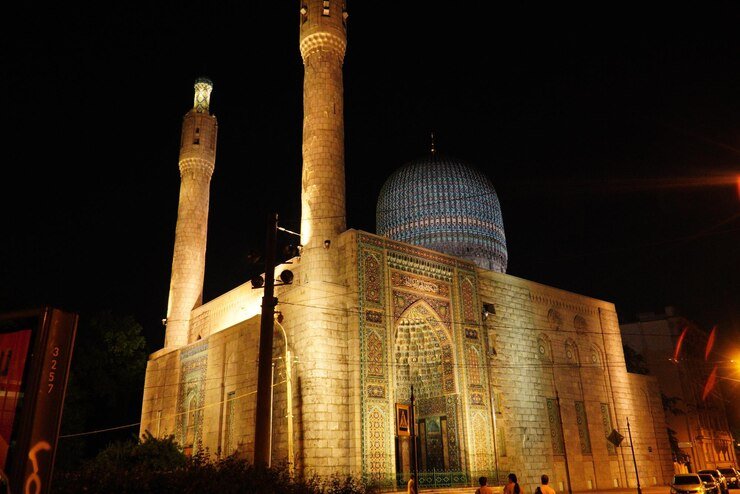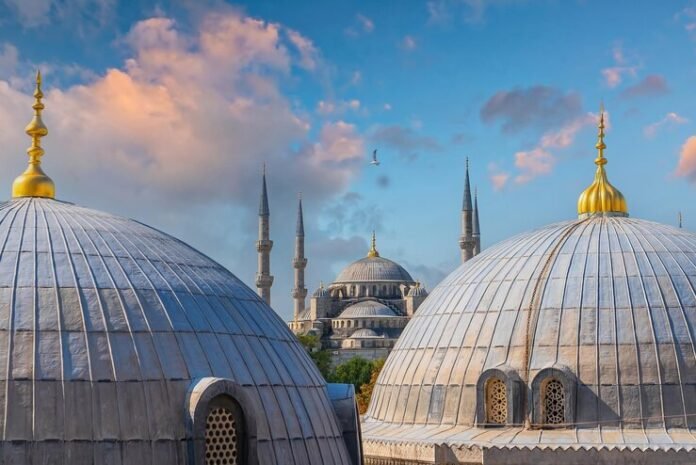In the heart of Koekelberg, Brussels, stands a beacon of cultural and religious significance—Mosquee Al Nasr. This mosque is not only a place of worship but also a hub for community engagement, cultural understanding, and social initiatives. With its striking architecture and deep-rooted history, Mosquee Al Nasr Koekelberg plays a vital role in the lives of many. In this blog post, we will explore the mosque’s importance, notable features, community activities, personal experiences from attendees, and its future vision.
Introduction to Mosquee Al Nasr Koekelberg
The story of Mosquee Al Nasr Koekelberg dates back to its inception in the 1970s when it began serving the growing Muslim community in the area. As the first mosque established in Brussels, it symbolizes the rich cultural diversity that characterizes the city today. Over the years, it has evolved into more than just a religious building; it has become an integral part of the local community, offering spiritual guidance and a safe space for socializing and learning.
The architectural grandeur of the mosque is a significant aspect of its identity. With elegant minarets and a large prayer hall adorned with intricate designs, Mosquee Al Nasr captures the essence of Islamic architecture while blending it with local influences. This unique combination of styles not only reflects the mosque’s respect for tradition but also its commitment to being a part of the modern urban landscape.
In this post, we will discuss the mosque’s essential role in promoting cultural understanding and religious tolerance, showcasing its notable design elements, community activities, and future aspirations. Whether you’re a local resident or a visitor, there’s much to discover about this important institution.
The Role of Mosquee Al Nasr Koekelberg
Mosquee Al Nasr Koekelberg is a pillar of support for the local Muslim community and serves as a bridge between different cultures. The mosque has played a crucial role in fostering cultural understanding and promoting interfaith dialogue. Through various programs and events, it encourages members of the community to engage with one another, breaking down the barriers that often separate different groups.
One of the primary missions of the mosque is to promote religious tolerance. It actively participates in initiatives that invite individuals of various faiths to share their beliefs and values. By hosting interfaith events and open discussions, the mosque helps dispel misconceptions and build a sense of unity among its diverse attendees. This commitment to inclusivity makes Mosquee Al Nasr a model for other religious institutions.
In addition to fostering understanding, the mosque engages in numerous community outreach programs. From providing educational resources for youth to offering support for those in need, Mosquee Al Nasr Koekelberg is dedicated to serving all members of the community, regardless of their background. This spirit of service is evident in the mosque’s approach to tackling social issues and promoting well-being in the neighborhood.
Notable Features and Design
One glance at Mosquee Al Nasr Koekelberg reveals its architectural splendor. The mosque’s design is influenced by traditional Islamic styles, characterized by intricate tile work, impressive domes, and towering minarets. These features not only enhance the aesthetic appeal but also serve a symbolic purpose, representing the connection between heaven and earth.
The exterior of the mosque is adorned with beautiful mosaics that tell stories of the Islamic faith and celebrate its rich heritage. Inside, the expansive prayer hall provides ample space for worshippers, with a layout designed to accommodate large congregations. The use of natural light streaming through stained glass windows creates an inviting atmosphere that encourages reflection and tranquility.

Materials used in the construction of the mosque further highlight its commitment to sustainability and modernity. Incorporating locally sourced materials minimizes the environmental impact while promoting regional craftsmanship. This thoughtful approach to design not only enhances the mosque’s functionality but also reinforces its connection to the surrounding community.
Community Activities and Events
Mosquee Al Nasr Koekelberg is a hub of activity, offering a variety of programs aimed at engaging the community and enriching the lives of its members. Regular activities include educational workshops, cultural celebrations, and social events that bring people together to learn and grow.
For families, the mosque hosts events such as picnics and family days. These gatherings provide an opportunity for parents and children to bond over shared experiences, fostering a sense of belonging within the community. Additionally, the mosque organizes Islamic education classes for all ages, ensuring that younger generations are equipped with knowledge about their faith and its values.
Special events during religious holidays, such as Ramadan and Eid, are also significant highlights of the mosque’s calendar. During these times, Mosquee Al Nasr Koekelberg opens its doors to everyone, creating an inclusive environment where all can partake in the celebrations. These events not only strengthen community ties but also offer a platform for sharing the richness of Islamic culture with the broader public.
Interview with Community Members
To better understand the impact of Mosquee Al Nasr Koekelberg, we spoke with several community members who regularly attend the mosque. Their insights provide a personal perspective on how the mosque has enriched their lives and the lives of others in the area.
One attendee, Fatima, shared her experience, saying, “The mosque has always felt like a second home to me. It’s where I learned about my faith, made lifelong friends, and found support during tough times.” Her sentiments were echoed by Ahmed, a local community leader, who emphasized the importance of the mosque in bridging cultural gaps. “In a city as diverse as Brussels, Mosquee Al Nasr plays a vital role in promoting understanding and acceptance among different groups,” he noted.
These personal stories highlight the mosque’s role as not just a place of worship but a community anchor. The relationships formed within its walls extend beyond religious practices, creating a network of individuals dedicated to supporting one another and fostering a better understanding of their shared humanity.
The Future of Mosquee Al Nasr Koekelberg
Looking ahead, Mosquee Al Nasr Koekelberg has exciting plans for continued growth and development. One of the primary goals is to expand its outreach efforts, ensuring that more individuals, especially youth, have access to educational resources and support systems. The mosque aims to enhance its programs by introducing innovative approaches to learning and community engagement.
Additionally, the mosque is exploring partnerships with local organizations and institutions to further its mission of promoting interfaith dialogue. By collaborating with schools and community groups, Mosquee Al Nasr seeks to foster a greater understanding of Islamic culture and its contributions to societal well-being.
In the coming years, Mosquee Al Nasr Koekelberg is committed to enhancing its facilities to better serve its members. Plans for renovation and expansion will enable the mosque to host larger gatherings and provide more resources. These developments reflect a dedication to meeting the evolving needs of the community and ensuring that the mosque remains a vibrant space for all.
Conclusion
Mosquee Al Nasr Koekelberg stands as a testament to the power of community, cultural understanding, and religious tolerance. Its architectural beauty, commitment to social engagement, and dedication to fostering connections among diverse groups make it an integral part of Brussels’ cultural fabric.



